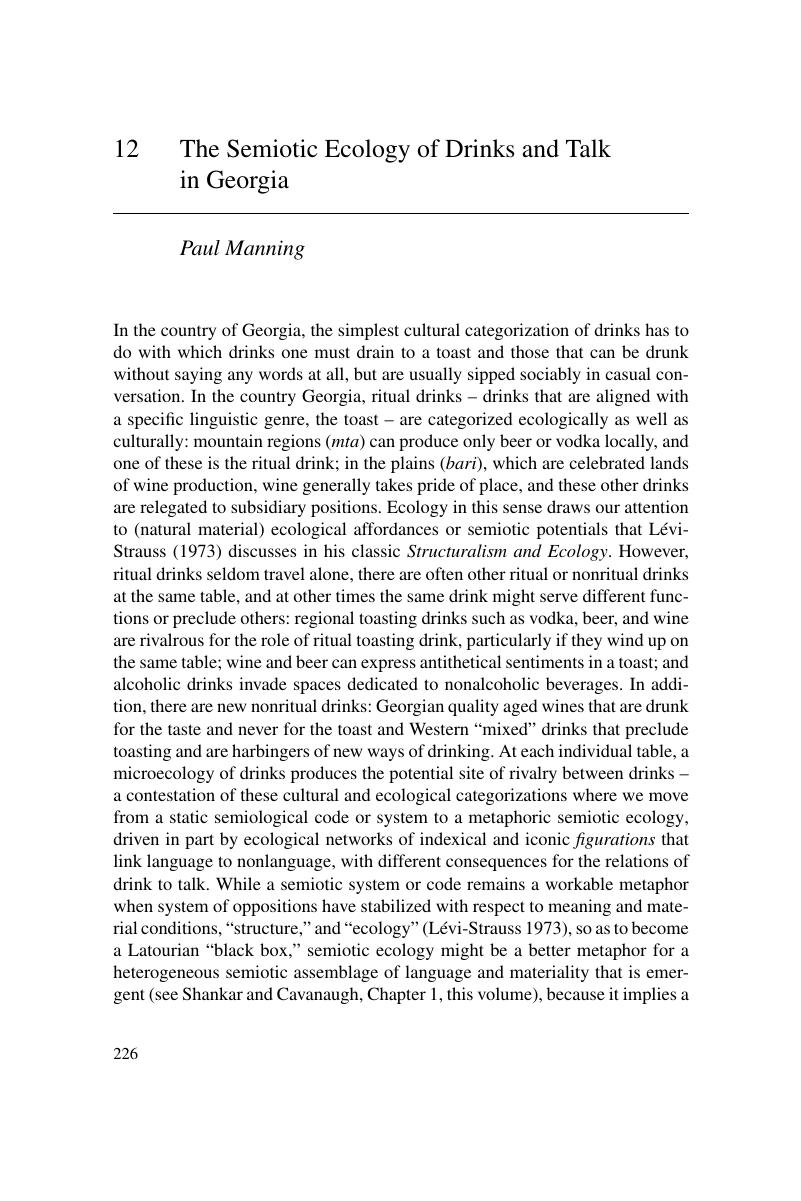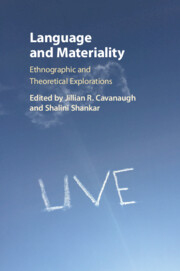Book contents
- Language and Materiality
- Language and Materiality
- Copyright page
- Contents
- Images
- Tables
- Contributors
- Acknowledgements
- 1 Toward a Theory of Language Materiality: An Introduction
- 2 Curated Conversation: “Materiality: It's the Stuff!”
- Part I Texts, Objects, Mediality
- Part II Transformation, Aesthetics, Embodiment
- Part III Time, Place, Circulation
- 9 Making and Marketing in the Bilingual Periphery: Materialization as Metacultural Transformation
- 10 Word-things and Thing-words: The Transmodal Production of Privilege and Status
- 11 Language and Materiality in the Renaming of Indigenous North American Languages and Peoples
- 12 The Semiotic Ecology of Drinks and Talk in Georgia
- Part IV More Stuff: Short Topical Commentaries on Language and Materiality and Afterword
- Index
- References
12 - The Semiotic Ecology of Drinks and Talk in Georgia
from Part III - Time, Place, Circulation
Published online by Cambridge University Press: 06 October 2017
- Language and Materiality
- Language and Materiality
- Copyright page
- Contents
- Images
- Tables
- Contributors
- Acknowledgements
- 1 Toward a Theory of Language Materiality: An Introduction
- 2 Curated Conversation: “Materiality: It's the Stuff!”
- Part I Texts, Objects, Mediality
- Part II Transformation, Aesthetics, Embodiment
- Part III Time, Place, Circulation
- 9 Making and Marketing in the Bilingual Periphery: Materialization as Metacultural Transformation
- 10 Word-things and Thing-words: The Transmodal Production of Privilege and Status
- 11 Language and Materiality in the Renaming of Indigenous North American Languages and Peoples
- 12 The Semiotic Ecology of Drinks and Talk in Georgia
- Part IV More Stuff: Short Topical Commentaries on Language and Materiality and Afterword
- Index
- References
Summary

- Type
- Chapter
- Information
- Language and MaterialityEthnographic and Theoretical Explorations, pp. 226 - 248Publisher: Cambridge University PressPrint publication year: 2017
References
- 1
- Cited by



